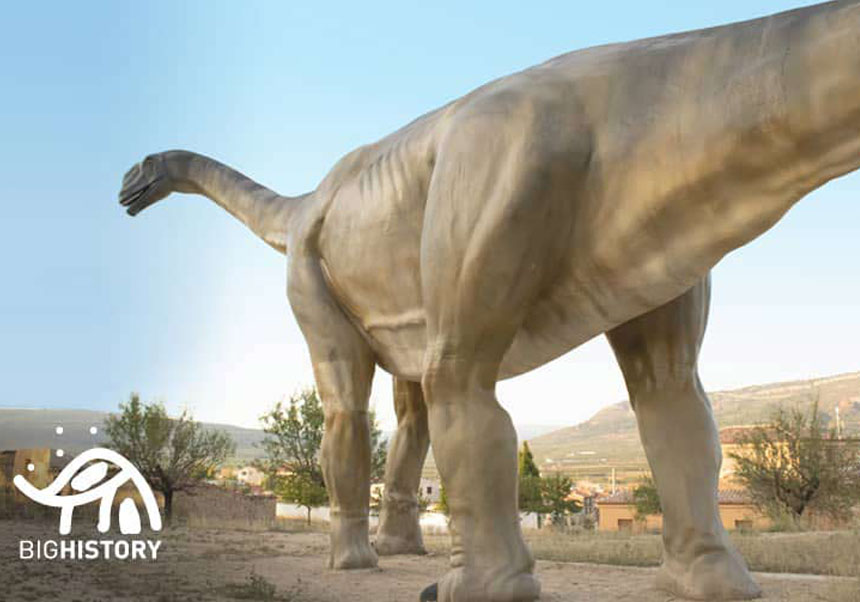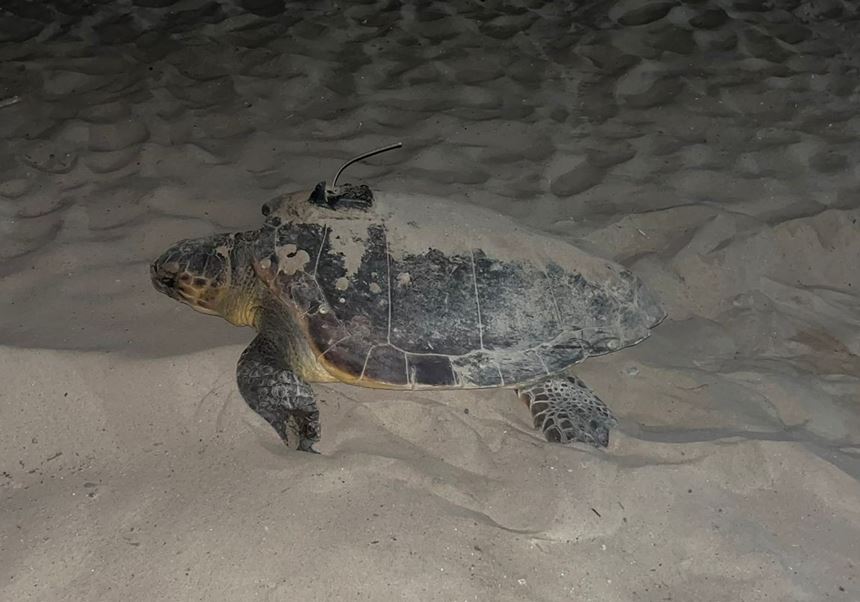Aras de los Olmos claims rural territories as a space for scientific and environmental dissemination in a one-day event
- Scientific Culture and Innovation Unit
- May 9th, 2024

The Big History project of Aras de los Olmos for scientific and environmental dissemination and education has organised the event “Science Dissemination from Rural Territories” for this Saturday 11 May. In it, 18 specialists will talk about the origins of the universe, plants, sustainable development, climate change, renewable energy, gender equality or digitalisation, among other issues. The meeting, scheduled from 10 a.m. to 6.30 p.m. at the Big History building, is organised by the University of Valencia (UV) and the City Council of Aras de los Olmos.
Aras de los Olmos, the most inland village in the Valencian region of Los Serranos, on the border with Aragon and Castilla-La Mancha, is developing its territory sustainably and with solid foundations by collaborating with different public entities. In 2013, the Big History centre was created here to raise awareness, sensitise and educate, from a practical and playful perspective, about the importance of science for sustainable development and talent attraction. Big History is also part of the international dissemination network Open Science Centres, which specialises in developing local communities through the opportunities offered by science and technology.
This Saturday's event will start with the interventions of the mayor of Aras de los Olmos, Rafael Giménez; Joaquín Martín, director of the Big History centre and professor at the UV Department of Constitutional Law, Political Science and Administration; and María Dolores Pitarch, UV delegate of the rector for Territory through the UniSocietat programme.
Organised into two blocks (“Where do we come from: the Big History”, and “Where are we going: the major challenges of the future”), the event will deal with issues related to water management, botany, zoology, palaeontology, gender equality, health and well-being, open science and astronomy, among others. The full programme is available here.
The activities, workshops, talks, conferences, exhibitions and courses on topics of social interest of the Big History centre have been held in collaboration with the Mancomunidad del Alto Turia, the Valencia Provincial Council, the Valencian Government and the Government of Spain, as well as with companies, associations and civil society organisations.
In this one-day event, UV faculty will lead the dissemination talks. Among others, there will be “Sustainable Development’, by María Dolores Pitarch, professor of Human Geography; “The Origins of the Universe”, by José Carlos Guirado, professor of Astronomy and Astrophysics; “The Human Being”, by Paula Jardón, professor of Didactics of Social Sciences; “Democratic Governance”, by Jorge Hermosilla, professor of Regional Geographical Analysis; or “Renewable Energy”, by Vicente Martínez, professor of Chemical Engineering. Also, “Digitalisation and Artificial Intelligence”, by Silvia Rueda, professor of Computer Science and Artificial Intelligence and “Gender Equality”, by Ana Sales, professor of Social Work and Social Services.
Big History Project
The Big History project reflects on the situation, weaknesses and strengths of Aras de los Olmos and is also committed to promoting culture, history and education. That is how the Astronomical Observatory of the University of Valencia, located in the Muela de Santa Catalina, consolidated here, as well as the Iberian site Castillo de la Muela (a fortified settlement dating from the 12th to the 6th century BC) and the Ethnobotanical Garden of medicinal and useful plants, which offers a collection of native plants for medicinal, culinary, ornamental and traditional uses.
This Saturday's event is part of the Annual Activity Plan of the Scientific Culture and Innovation Unit of the University of Valencia and is co-funded by the Spanish Foundation for Science and Technology (FECyT). The event also includes the recording of 30 micro-videos (maximum 2 minutes) on topics related to astronomy, geology, botany, palaeontology, archaeology, history or engineering, among others. A summary book with all the presentations made will also be published.
File in: Investigació a la UV , Universitat i societat , Viure a la Universitat , Facultat de Dret , Participació i Projecció Territorial , Difusió i comunicació científica , Institucional , Grups de recerca , Internacionalització recerca , Recerca, innovació i transferència
















